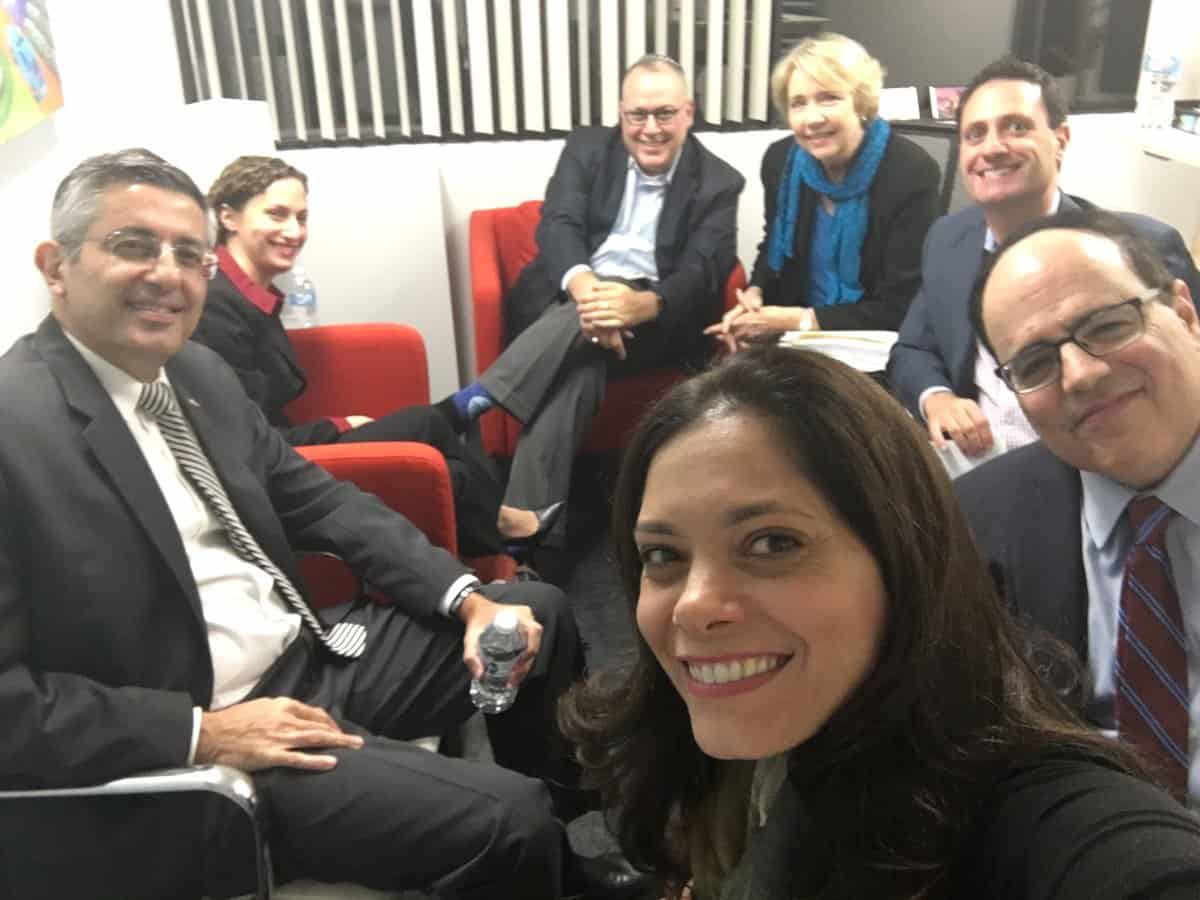Two sets of interactions over the past week have been on my mind.
This past Tuesday night our JCRC network member Israeli-American Council hosted a community meeting regarding ongoing concerns about curriculum standards in Newton Public Schools with regard to Middle East education. In the days leading up to the event I received numerous calls and emails from members of our community urging me to not participate on the panel (which was limited to myself and representatives of three of our member organizations). The argument against my participation, in sum and as these folks put it: That the discussion about this matter over the past six years had been made irreparably toxic through the actions of other, irresponsible people; thus any legitimization of the topic as a matter of interest and concern by us would only serve to advance and amplify the efforts of those extreme actors.

As posted on Twitter from the IAC-hosted community meeting in the “green” room
On a separate and unrelated matter, I’ve received a volume of communication amplifying a series of editorial columns circulating in recent weeks. The crux of the argument as these folks put it: given that no President of the United States has ever been as completely supportive of the priorities of a sitting Israeli government as the current administration, it behooves Jewish communal leaders – and specifically in their minds, JCRCs – to focus our efforts on thanking the President for his support. We as leaders are being urged to stop criticizing our government on other matters, even those where we have a broad consensus, such as on matters of immigration and refugee policy.
So what is the common thread in these two exchanges, with folks holding wildly different political and world views on totally separate topics? In both, we are being urged to reject complexity and just shut up. In this moment of polarization and oversimplification, we at JCRC are leaning into core principles to guide our work:
Much of our civic debate presents each and every issue as having two opposing and predictable positions, with increasing segmentation of society into two wholly opposed and yet internally fully aligned camps.
We at JCRC choose to examine each issue with the assumption of it having complexity and nuance. We see more than “two sides.” We know that when we allow the public debate to be defined only by those with the most polarized postures yelling the loudest at each other, we do a disservice to ourselves and our community. So, we embrace the complexity. We refuse to walk away from an issue that matters to us just because others behaved badly. And we seek to hold the broad middle, the place where consensuses can exist, and where, in the absence of consensus, at least some bridging of understanding can be built.
We decline to fall prey to the tribal and partisan traps, even as we offer a voice in admittedly politicized debates. We sit on the side of the values and priorities we’ve chosen to advance in the public space.
We call each issue as we see it, and we address each of them in relationship with those whom with we disagree. If someone – an elected official or anyone else – is taking a position on a policy where we have a consensus in support, we’ll express that support. And when the same actor takes action where we have a consensus in opposition, we won’t be deterred from expressing that opposition. Sometimes that positions us in different places from our friends, and sometimes places us in alignment with those with whom we have deep differences on other issues. But in the end, the voice we bring will be the authentic reflection of our process and our consensus on that specific issue.
More and more we see folks fully align with “our” tribe on all matters and see the “other” tribe as not only wholly wrong but something to be disparaged and demonized. These trends are playing out within our Jewish community as well.
We are called to resist these trends and to side with the tribe of those who are bound by common values, seek to build bridges of understanding, and are willing to embrace complexity. I hope that you will join us in this work.
Shabbat Shalom,
Jeremy


